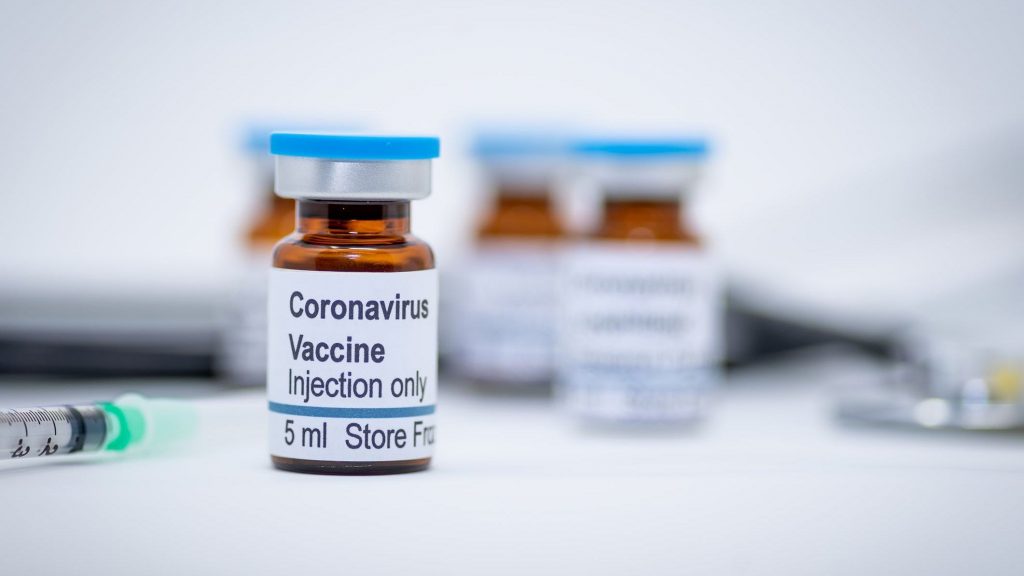Manas Dasgupta
NEW DELHI, Jan 13: As the stage is getting set for the launch of the mass inoculation drive from Saturday, the central government on Wednesday made it clear that the states and the beneficiaries would not be given the option to choose between the two vaccines available in the country “at least as of now” forcing the Indian Council of Medical Research (ICMR) to promptly guarantee the safety of the indigenously developed “Covaxin.”
The statement by the ICMR scientist that Covaxin developed by the Hyderabad-based Bharat Biotech was safe and there should not be an “iota of apprehension about it safety” comes in the wake of continuous expressions of doubts about the reliability of the vaccine which was yet to come out of the third phase trial.
Besides the opposition, several ruling party leaders had expressed the apprehension that the Drug Controller General of India (DCGI) might have taken a hasty step in giving authorization for emergency use of Covaxin along with Covishield manufactured by the Pune-based Serum Institute of India (SII) under manufacturing license from Oxford University – AstraZenaca.
Batches of vaccines shipped by both the SII and Bharat Biotech after receiving purchase orders from the centre had reached various destinations across the country for the first phase of inoculation for the three crore frontline workers.
With limited doses of Coronavirus vaccines available initially, the Centre said the states would not have the option to choose which vaccine to administer to its priority groups.
As of Tuesday, 54.72 lakh doses of the two vaccines cleared for use by the national regulator had reached vaccine stores across the country, the government said.
“As we speak 54.72 lakh doses have been received at the points; and 100 per cent doses, which is 1.1 crore from SII and 55 lakh from Bharat Biotech, will reach by January 14,” Union Health Secretary Rajesh Bhushan told a media conference. Orders with the vaccine suppliers would be staggered and the “manufacturers are aware of this,” he said.
Replying to a specific question over choice between the two vaccines, Bhushan said, “Across the world, in many countries, multiple vaccine candidates are being administered. No such option is still available to the beneficiary (to choose a vaccine).”
A state-level regional vaccine store has been established in each state, where the doses are expected to reach at least two days before the rollout, Bhushan said. “However, a few bigger states and UTs have more than two regional stores – Uttar Pradesh has 9, Madhya Pradesh 4, Gujarat 4, Kerala 3, Karnataka 2, Rajasthan 2, and Jammu & Kashmir 2,” he said.
The price at which the government is procuring the vaccines is significantly lower than the current prices globally, Bhushan said.
“The price of a single dose of the Pfizer vaccine, which has got emergency use authorisation in many countries, is Rs 1,431; here were are not including the overhead cost and taxes as that information is not available in public domain. The cost of a single dose of Moderna’s vaccine is in the range of Rs 2,348 to 2,715; the Chinese vaccines developed by Sinopharm and Sinovac Biotech cost Rs 5,650 and Rs 1,027 per dose respectively. The per dose cost of Sputnik V and the vaccine developed by Johnson & Johnson is Rs 734.” In comparison, Covishield has been offered to the government at Rs 200 per dose and the price of Covishield quoted at Rs 295 per dose would work out at Rs 206 per dose after taking into account that more than 30 per cent of the consignment would be free of cost as Bharat Biotech’s special gesture towards the national government.
The ICMR director general Balram Bhargava pointed out that vaccines would be administered two doses per person four weeks apart. “Currently, the recommendations are very clear that two doses will be given at day 0 and 28. There is some literature that you can give [the second dose] up to six weeks [after the first dose]. Some countries are discussing if it can be given at a bigger gap. But at the moment we would like to stick to 4 weeks,” Dr Bhargava said.
Amidst all the preparations, Dr Samiran Panda, head of epidemiology and communicable diseases division, ICMR, called for people to dispel the myths and misconceptions around Covid-19 vaccines.
“The vaccine that India has developed, Covaxin, presents to immune system a wide array of antigens, so the immunity which will be produced after vaccination is expected to address the mutants as well,” Panda said,
Speaking about the speed at which the vaccines have been developed, Dr Panda said, “In older days, it would take 20-30 years to get a vaccine or medicine out in the market. Given the knowledge about the whole genome of the virus, the vaccine (Covaxin) has come out within 10-12 months, which underlines the superiority, ability and commitment of Indian scientists.”
He said the Indian vaccine development programme had taken a “smart vaccination approach, rather than mass vaccination approach. Herd immunity produced by vaccination is a good idea but when the virus mutates, immunity might not be working against it even if it is a drift,” he said.

